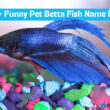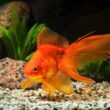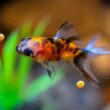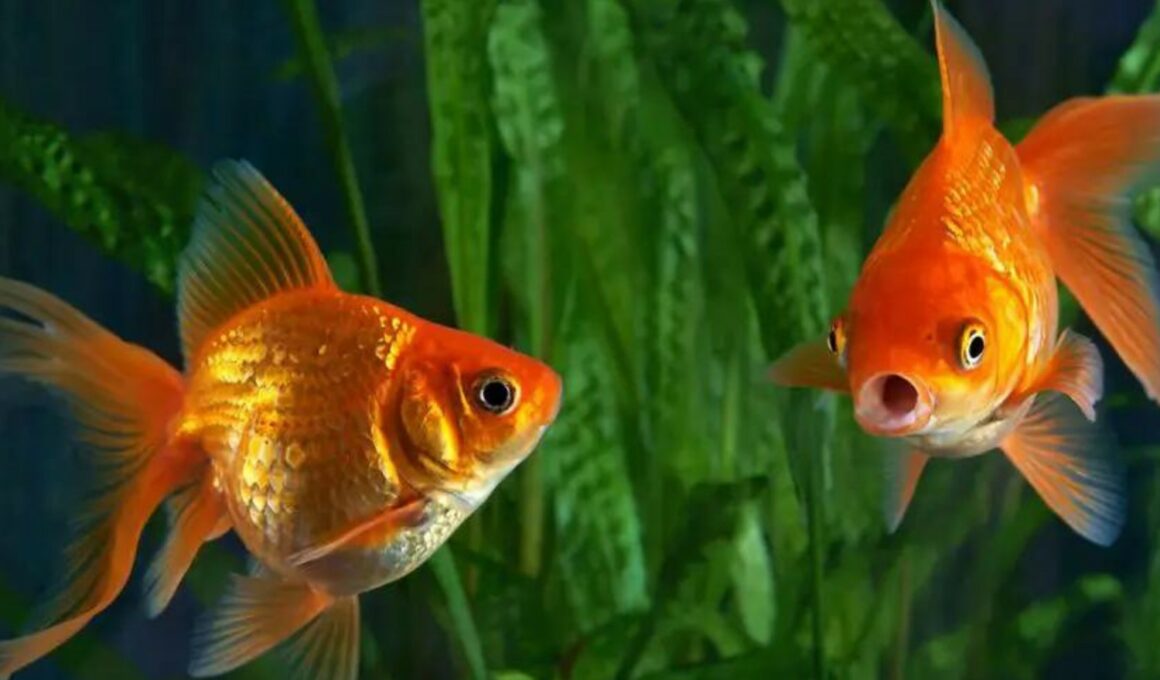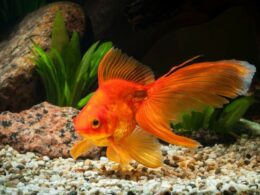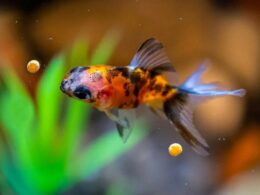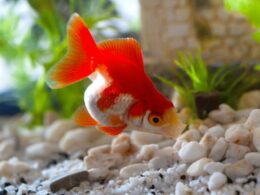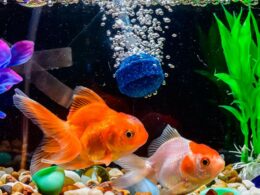In this article Show
If you’re a goldfish owner like me, you’ve likely pondered over the question: Are bloodworms good for goldfish? It’s a query that often surfaces among aquarium enthusiasts seeking to provide the best nutrition for their aquatic companions.
Goldfish, with their vibrant colors and playful antics, are a staple in many home aquariums. As a seasoned fishkeeper, I understand the importance of maintaining a balanced diet for these charming aquatic pets.
Goldfish, belonging to the carp family, thrive on a varied diet that mimics their natural feeding habits. While commercial fish flakes and pellets serve as staples, incorporating live or frozen foods can offer added nutritional benefits.
Among these options, bloodworms stand out as a popular choice for many fish keepers. In this article, we’ll explore the nutritional value of bloodworms and their potential benefits for goldfish health.
Are Bloodworms Good For Goldfish?
Yes, bloodworms can be beneficial for goldfish when fed in moderation. These nutrient-rich larvae offer a natural source of protein, vitamins, and minerals, promoting healthy growth and vibrant coloration in goldfish. However, it’s essential to be mindful of potential risks associated with overfeeding and contamination.
Nutritional Value of Bloodworms
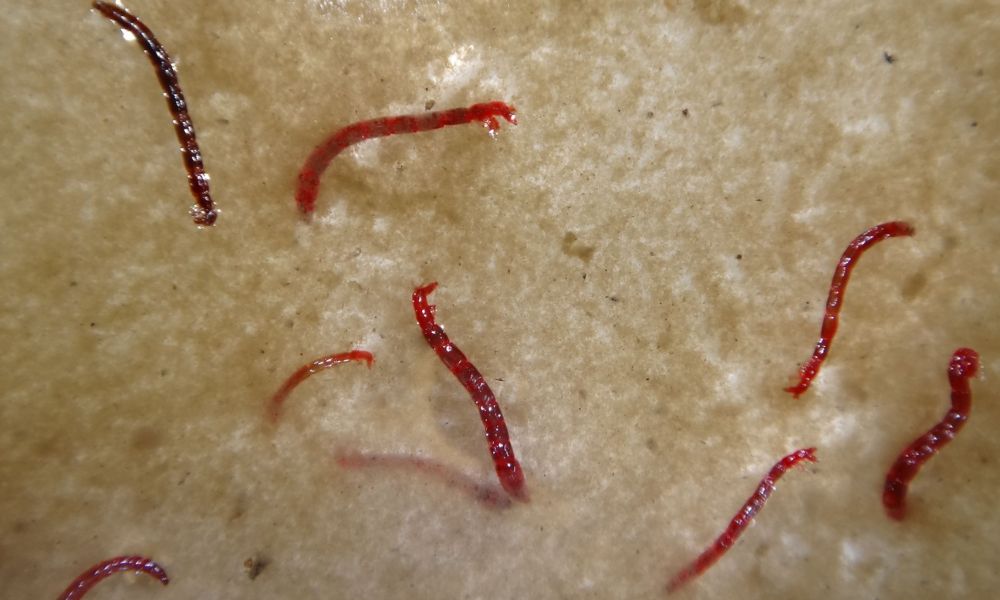
Bloodworms pack a punch when it comes to nutrition for goldfish. Rich in protein, these tiny larvae provide essential building blocks for muscle development and overall growth.
Additionally, bloodworms contain vitamins like vitamin A, which supports eye health and immune function, and vitamin D, crucial for calcium absorption and bone strength.
Minerals such as iron and calcium are also present, aiding in blood oxygenation and skeletal integrity. By incorporating bloodworms into their diet, goldfish can enjoy a well-rounded meal that promotes vitality and enhances their overall well-being.
Benefits of Bloodworms for Goldfish
Bloodworms offer a plethora of benefits for goldfish. Their high protein content supports healthy growth and muscle development, ensuring your goldfish thrives.
Additionally, the vitamins found in bloodworms, such as vitamin A, contribute to vibrant coloration, making your goldfish even more dazzling to admire. Moreover, nutrients like iron and calcium help maintain overall health, from strong bones to robust immune systems.
By incorporating bloodworms into your goldfish’s diet, you’re providing them with essential nutrients that promote their well-being and enhance their natural beauty.
Risks and Considerations
While bloodworms offer numerous benefits for goldfish, it’s essential to be aware of potential risks and take necessary precautions. Overfeeding can lead to digestive issues and water quality problems in the aquarium.
Contamination of bloodworms can occur if they’re not stored or handled properly, posing health risks to your goldfish. Additionally, some fish may have allergies or sensitivities to certain foods, including bloodworms.
To mitigate these risks, feed bloodworms in moderation, ensuring they’re part of a balanced diet. Always purchase from reputable sources, store them correctly, and avoid feeding expired or spoiled bloodworms. If your goldfish shows any signs of allergic reactions or digestive issues, discontinue feeding bloodworms and consult with a veterinarian specializing in fish health.
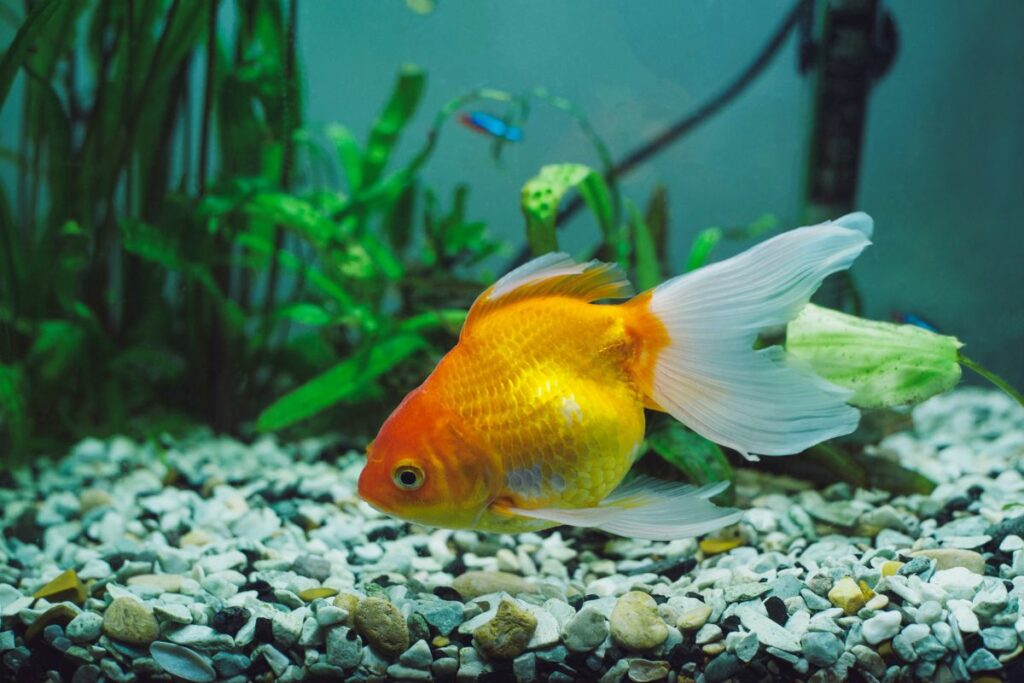
Feeding Tips For BloodWorms
Incorporating bloodworms into your goldfish’s diet can be beneficial, but it’s essential to do so wisely.
- Offer bloodworms as a supplement to their regular diet of fish flakes or pellets, rather than as the sole food source.
- Aim to feed bloodworms to your goldfish 2-3 times a week to provide variety and essential nutrients.
- When offering bloodworms, ensure they’re appropriately sized for your goldfish to avoid choking hazards.
- As for portion sizes, feed an amount that your goldfish can consume within a few minutes, removing any uneaten bloodworms to prevent water quality issues.
Remember to maintain a balanced diet by incorporating other foods like vegetables or commercial fish foods to ensure your goldfish receives all the necessary nutrients for optimal health.
Alternatives to Bloodworms
While bloodworms are a popular choice for goldfish, there are plenty of alternative foods to ensure a balanced diet.
- Live foods such as daphnia, brine shrimp, and mosquito larvae offer similar nutritional benefits to bloodworms and can add variety to your goldfish’s meals.
- Frozen options like brine shrimp, krill, and mysis shrimp are convenient and readily available at pet stores.
- Additionally, commercial fish foods in pellet or flake form specifically formulated for goldfish can serve as staple diet components, providing essential nutrients in a convenient package.
By rotating between these different food options, you can ensure your goldfish receives a diverse and nutritious diet that supports their health and vitality.



